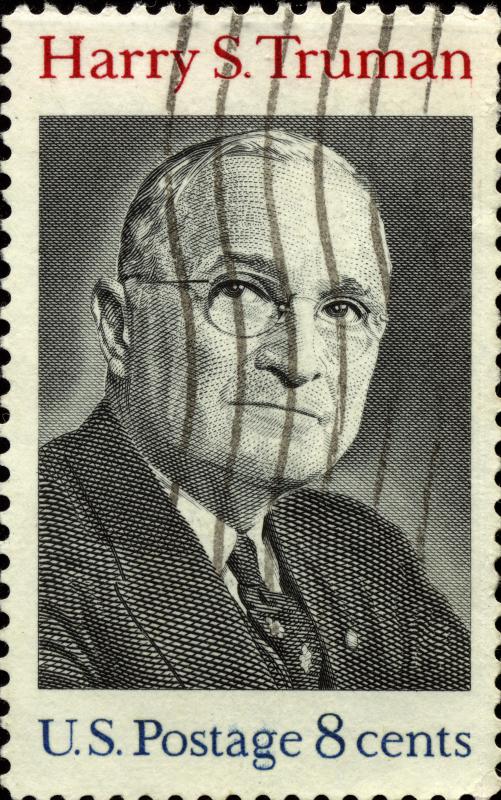At WiseGEEK, we're committed to delivering accurate, trustworthy information. Our expert-authored content is rigorously fact-checked and sourced from credible authorities. Discover how we uphold the highest standards in providing you with reliable knowledge.
Why is so Much Attention Placed on a President's First 100 Days?
When President Franklin D. Roosevelt took office in 1933, the US was reeling due to the difficulties of the Great Depression. Many people were out of work with little help, banks were threatening to go completely under, and numerous people felt aggressive reforms were needed to help reshape the country. Those who supported President Roosevelt and elected him also expected quick reform. In response, Roosevelt set up a First 100 days agenda that has been considered one of the most ambitious in the history of the American presidency.
President Roosevelt’s first 100 days agenda attacked the problems the US faced from several directions, and in those days he signed into law numerous plans and created many programs that were designed to lift the US and its people out of crisis. The efficacy of these plans can be debated, but one thing is certain. In setting off on such an ambitious track, Roosevelt created something of a litmus test by which all other presidents would be judged. Now it is very common for politicians and political analysts to view the first 100 days as some kind of indication of the direction of any person’s role in the presidency.

When Roosevelt enacted his plans for instance, he was virtually unopposed by congress. This has not been the case for many of the succeeding presidents. Depending upon the political lean of the house or senate, presidents may face great opposition in trying to get ambitious bills passed when they reach office. The first 100 days may set off a power struggle between the executive and legislative branches that will continue throughout a presidency, and render a president’s plans ineffective.

Another reason why many people accept the first 100 days analysis as marking whether a president is going to be effective is because this is the time, when presidents can either start making good on campaign promises or prove they exaggerated or lied about their intent. A conscious electorate may pay close attention to early decisions made to see if they adhere to the promises a president claimed prior to being elected. Public opinion of the presidency may rise or fall depending upon how these early days of governing the country are utilized.
There have been successful presidents, and ones that go on to be judged quite kindly or are elected to second terms who don’t have great “first 100 days.” President Ronald Reagan was nearly assassinated during the early days of his presidency. Perhaps most often cited is President John F. Kennedy’s involvement in the Bay of Pigs, which frightened most Americans, as many felt nuclear war was imminent. This occurred on the 88th day of Kennedy’s term in office. Other examples abound.
Many people debate the fact that the first 100 days are an accurate litmus test for presidential success. Especially when a president takes over in a time of great stress in the country, it can certainly take longer than 100 days to enact plans that will benefit the US or its citizens. Some political analysts and politicians actually beg new presidents not to be “rushed” by the 100 days myth, and argue that creating good programs or laws is far more in the interest of people, than simply creating fast programs or laws that later prove to have problems or were not carefully constructed.
Nevertheless, President Roosevelt’s actions continue to lead to an expectation by many that any incoming president will show his/her quality in the first 100 days in office. History does not always support this expectation. However, a country ready for change may be impatient and want to see it quickly, and presidents who respond to this in an expedient manner may keep the favor of the people for longer.
AS FEATURED ON:
AS FEATURED ON:












Discussion Comments
@Iluviaporos - If someone has made promises in their campaign, particularly controversial ones, they should be able to deliver on those, or at least start the process of doing so, within a hundred days. If they aren't willing to do so close to the start of their term, then they might never do it. It's a different gesture to make controversial changes when you think it might influence voters at the end of your term.
And in some cases, you really want for things to change quickly. Even 100 days might feel like too long to wait.
@MrsPramm - Well, it's not like they are going to kick him (or her) out if the first 100 days don't go well. I think it's all about public perception, honestly, and that's got a lot more to do with media manipulation than it does with anything that actually happens in politics.
I really don't think it's a good idea to put so much emphasis on a President's first 100 days. If they are a leader worth having, they will have a long term plan that may not necessarily look like much that soon. That's only a fraction of their time in office, after all and they would have been spending a great deal of it getting used to the job and doing administrative work.
Putting emphasis on that kind of sink or swim mentality could lead to mistakes or increase the public's expectations beyond what is actually possible.
Post your comments